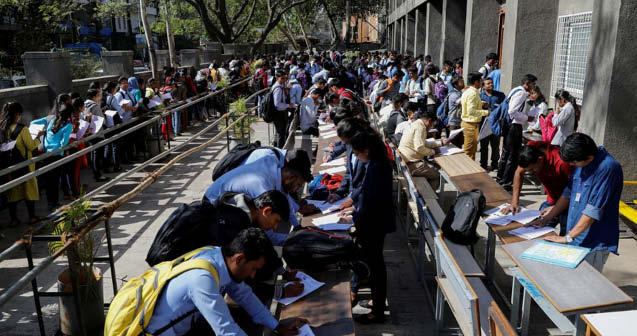The coronavirus pandemic has led to a major crisis of unemployment across the world. The most significant economic fallout of the lockdown has been its ability to render people unemployed, jobless and without a source of income. The world has lost more than 400 million full-time jobs in the year’s second quarter(April-June 2020) due to the coronavirus induced lockdown according to the International Labour Organisation.
The ILO also pointed out to the fact that the impact of the global loss of jobs could be felt much more in Africa than in other corners of the world. The second greatest impact could be felt in Asia, which is much more than what earlier estimates predicted.
The ILO tells us that more than 59% of the world’s total full time jobs have bee erased due to the pandemic and the worst affected is the Asia-Pacific region while South Asia accounted for 110 million of the total 235 million full time jobs that were lost in this quarter. South Asia and Africa have accounted for a 400% increase since the first estimates suggest the newest estimates.
These losses have been multiplied by nearly 158% in the second three months as per the estimates that have been released.
More than 245 millions jobs were lost in three months of the pandemic. It was the south asian region of the world which is composed of nations such as Afghanistan, Pakistan, Maldives, India and Bangladesh that accounted for 89 millions jobs that had been lost.
The International labour Organisation arrived at these estimates while keeping in mind a 48 hour work week. If we consider a work week to comprise 40 working hours, then there would be a loss of 480 million full-time jobs lost in the second quarter. South Asia would still account for more than 28% of the jobs that have been lost.
If we were to look at the figures from India, the second quarter was marred by a sharp increase in unemployment to 23.42% in April from 8.74% in March.
M0re than 11 Indian states have an unemployment rate of 20% according to a report published in Down to Earth. While several countries around the world are easing out lockdown restrictions, there are predictions for a second wave of the disease.
This means that many countries will be compelled to reinforce restrictions once again and the job market will suffer a fresh blow. With the employment market receiving a major blow under the coronavirus pandemic, it will be a challenge for nations to work for building a better future for millions of people around the world and empower them for a dignified existence.














